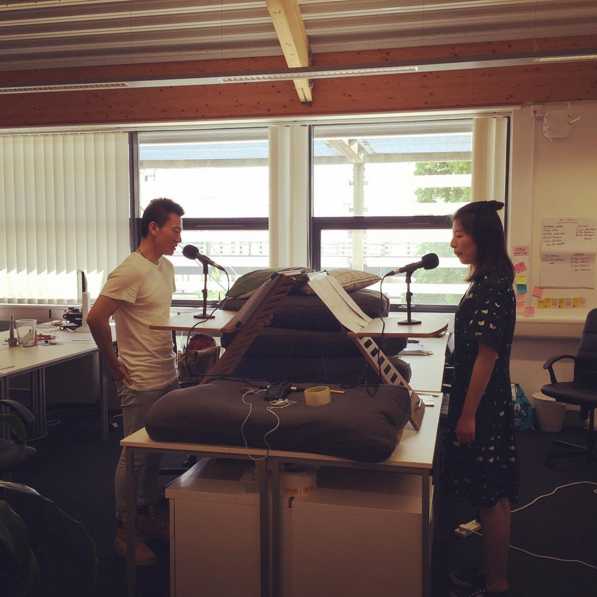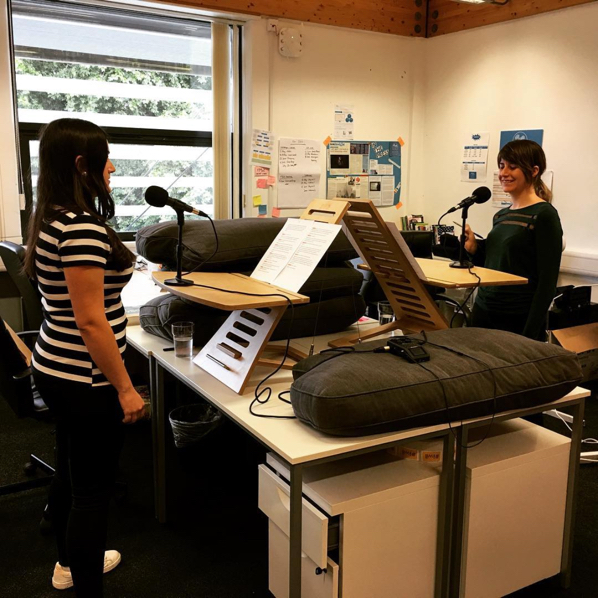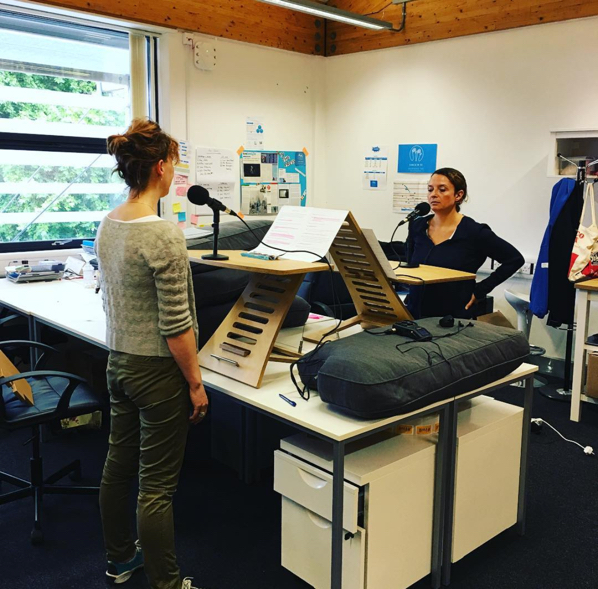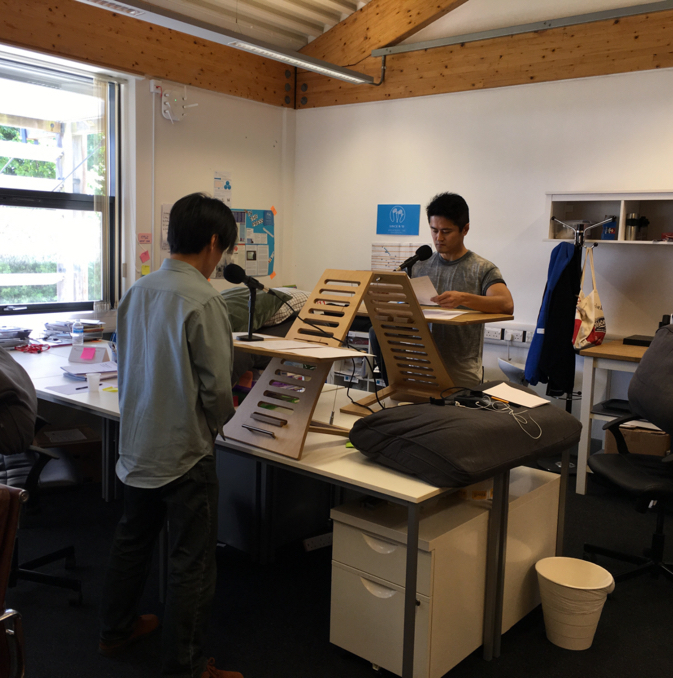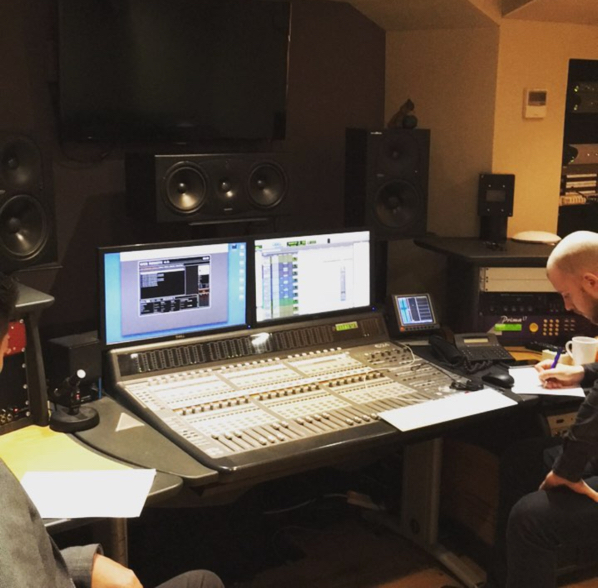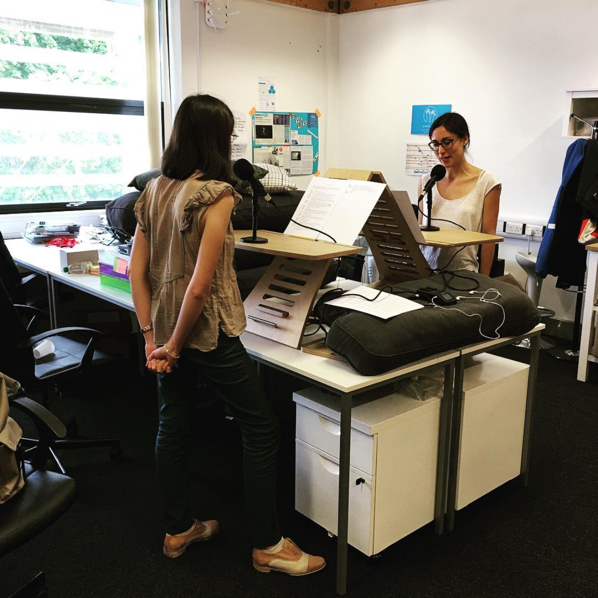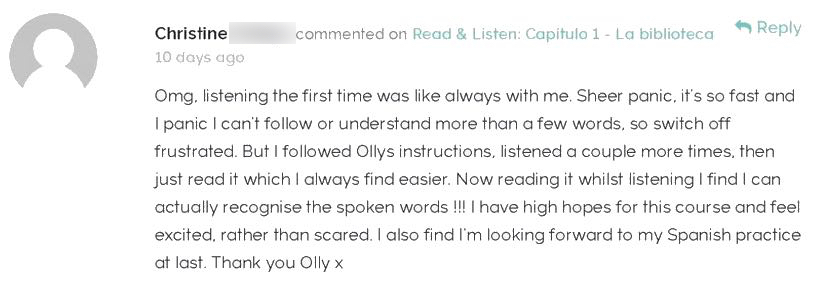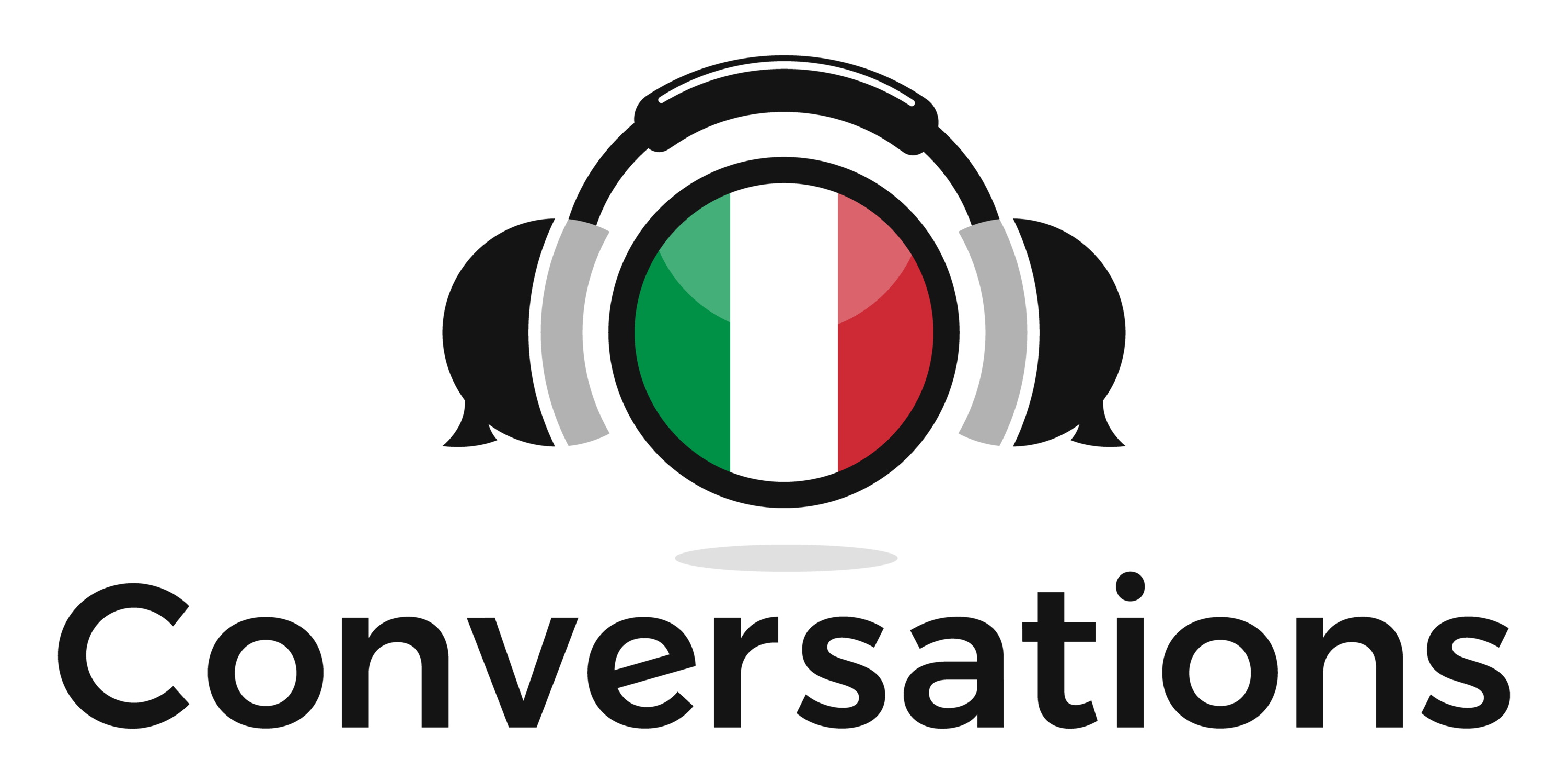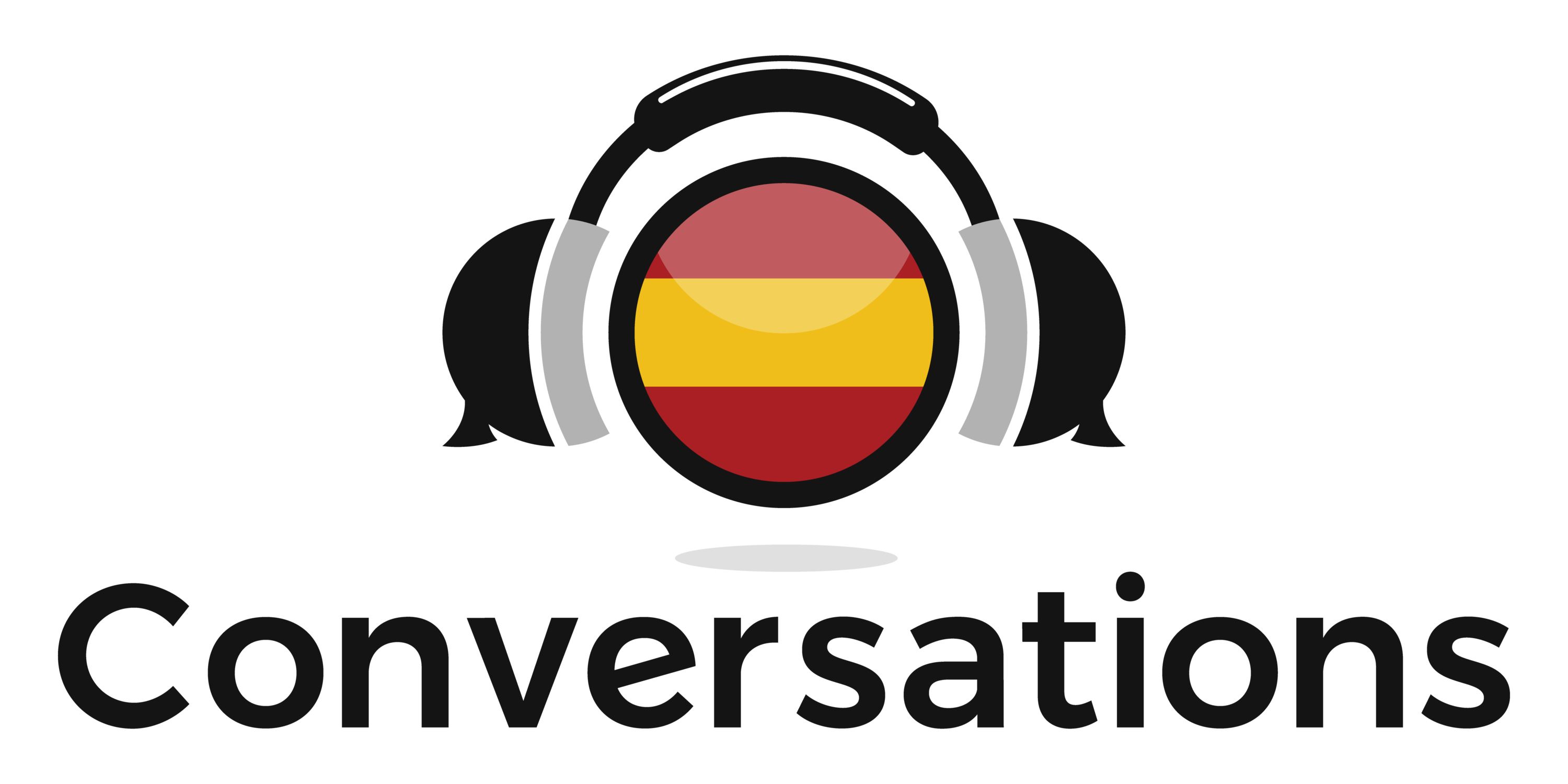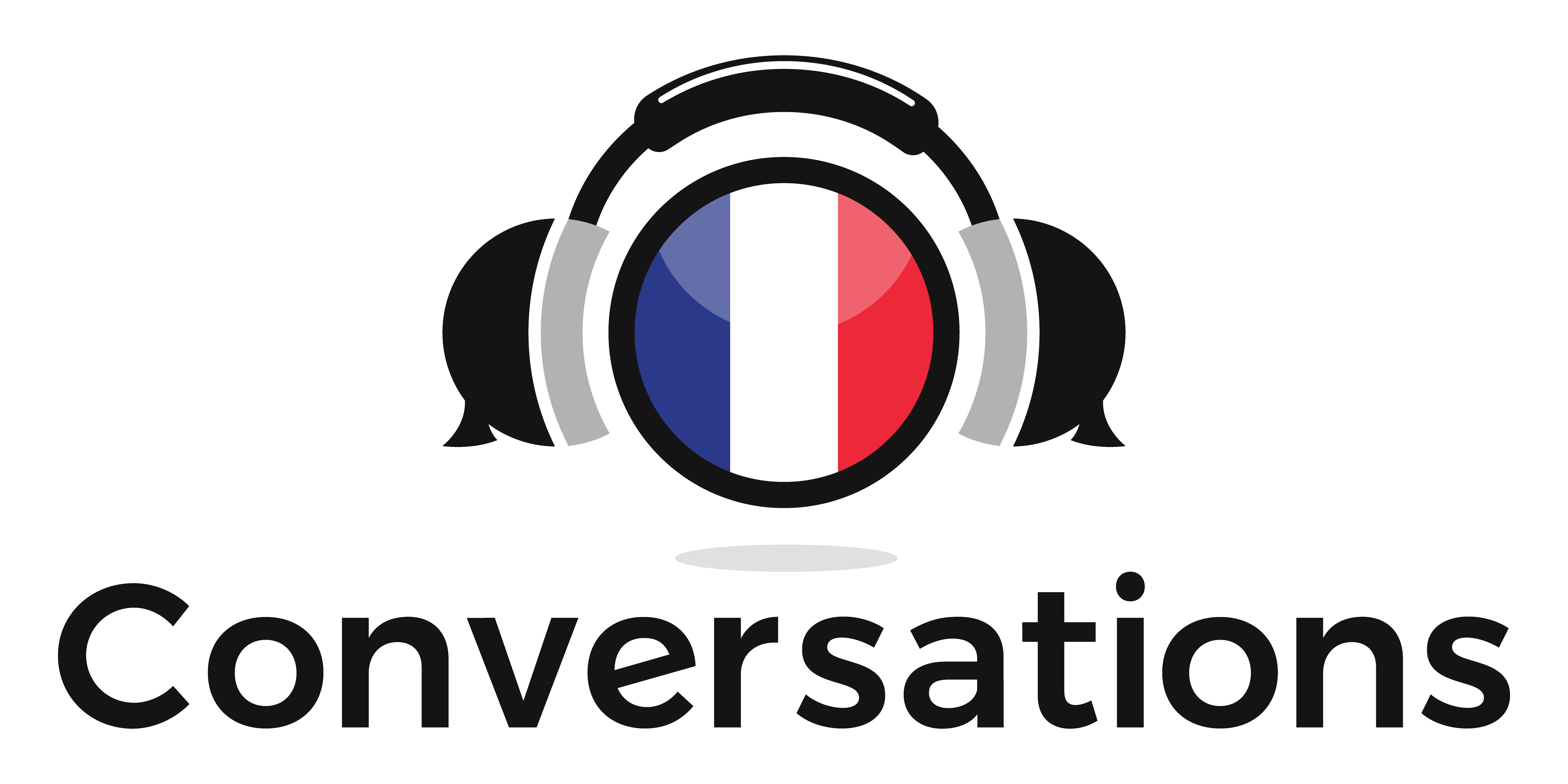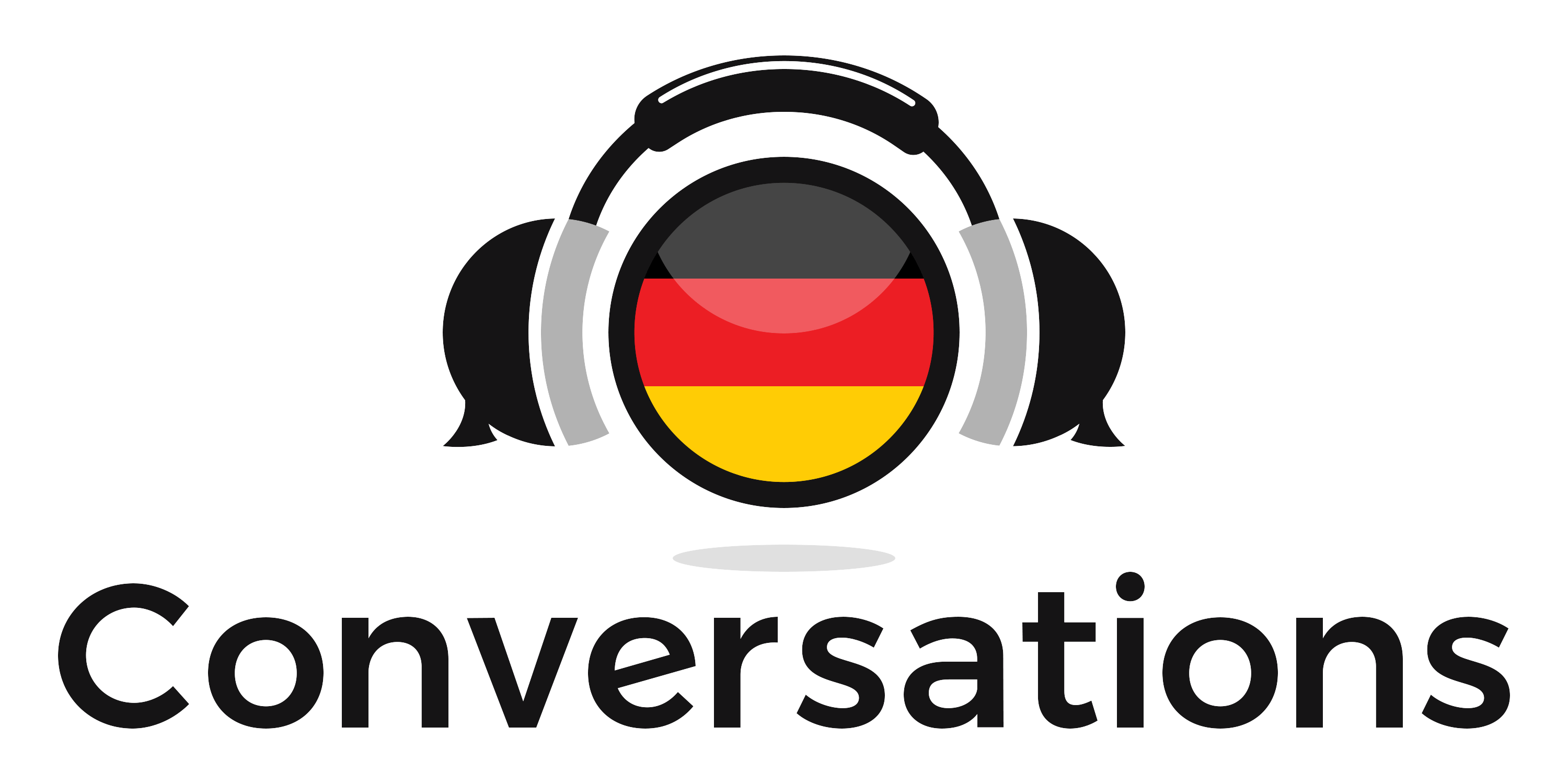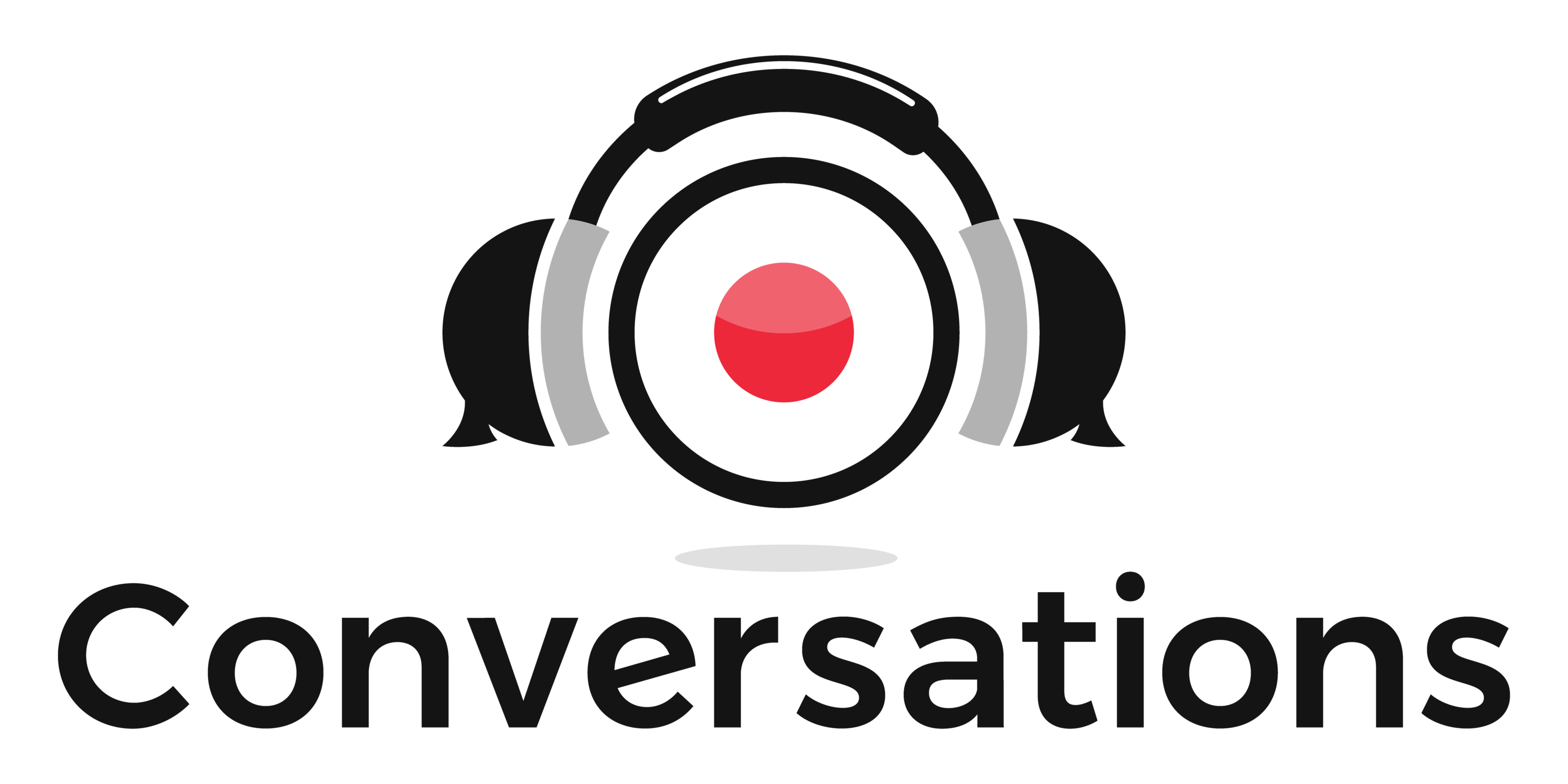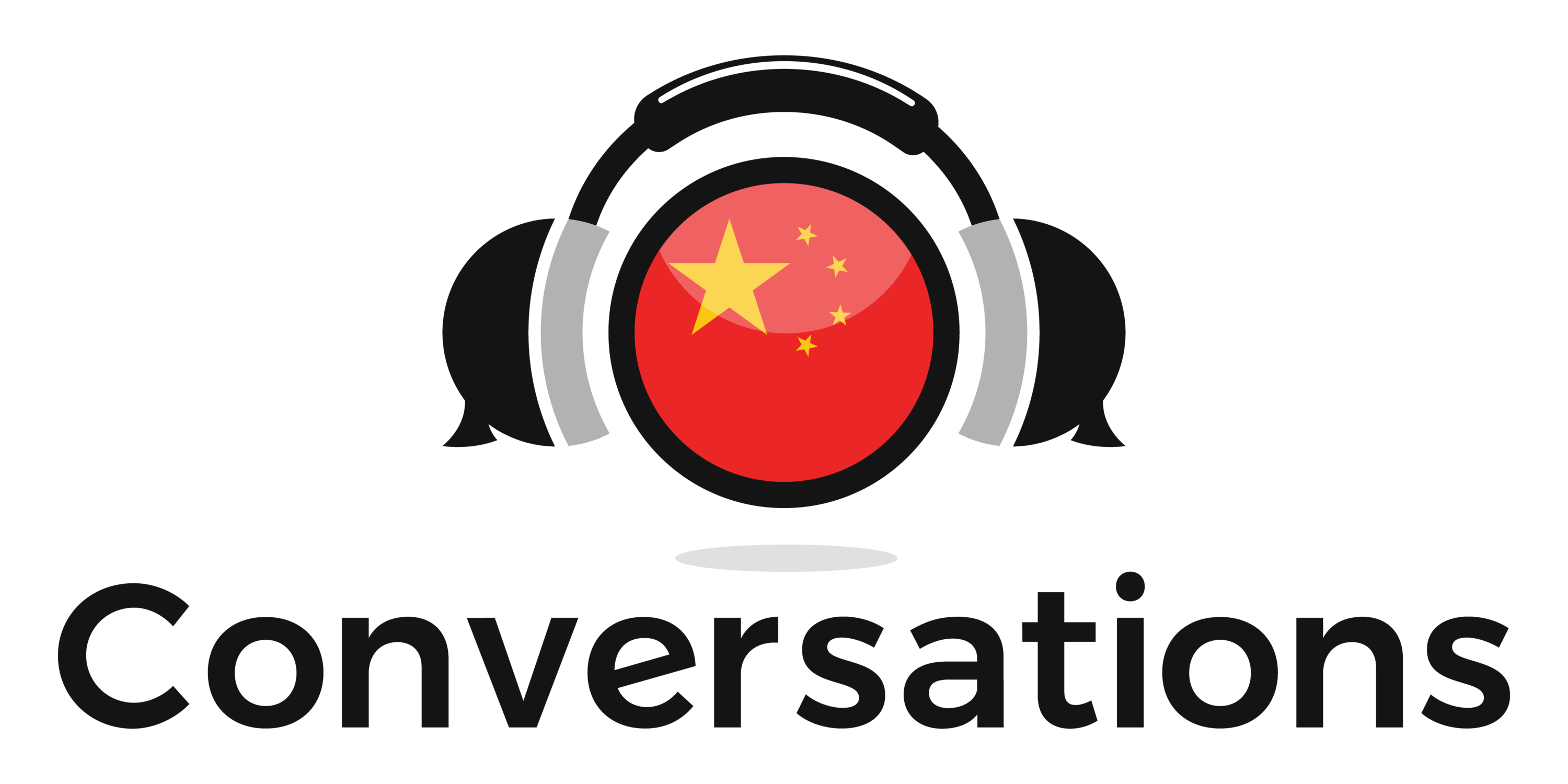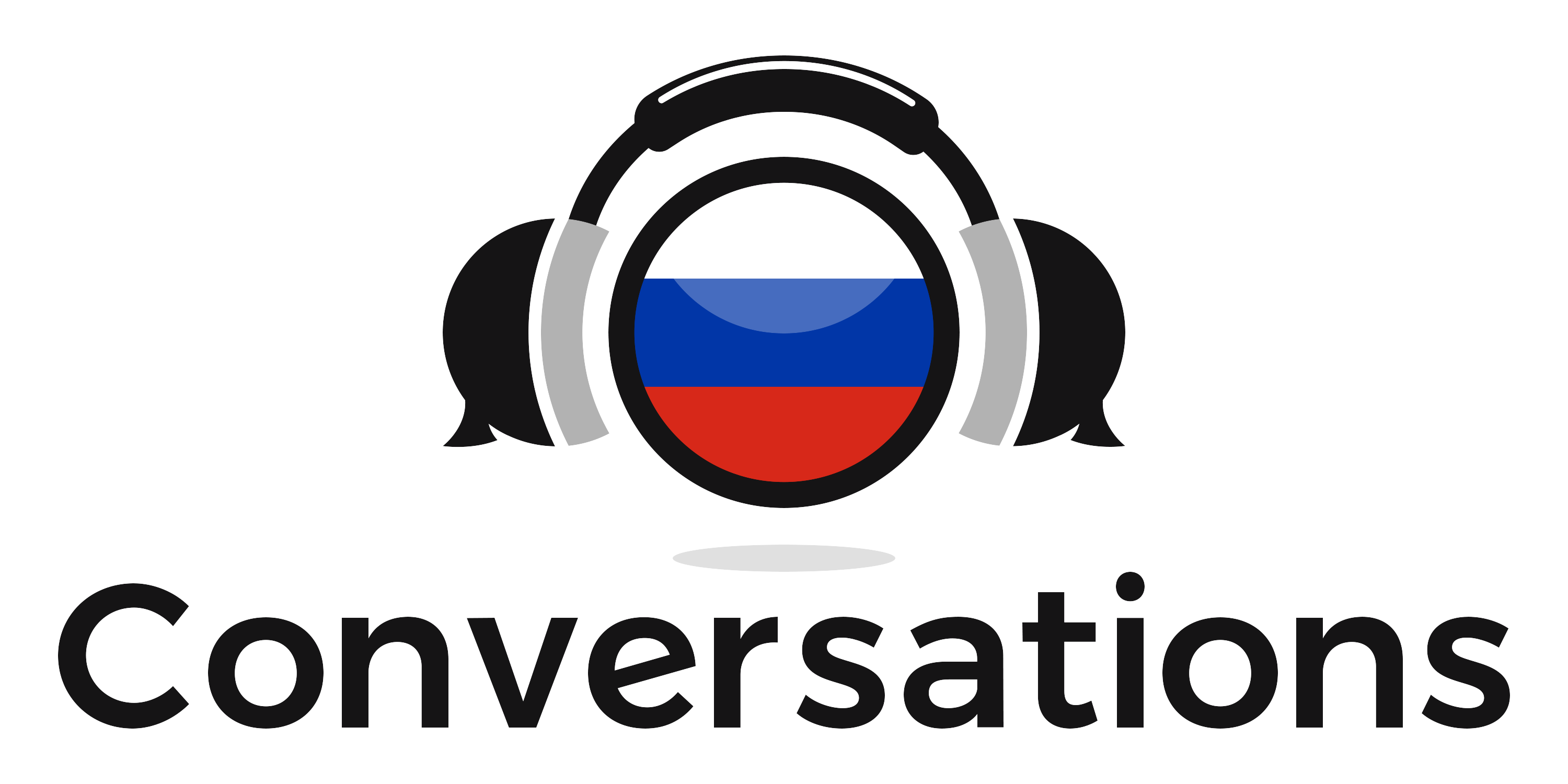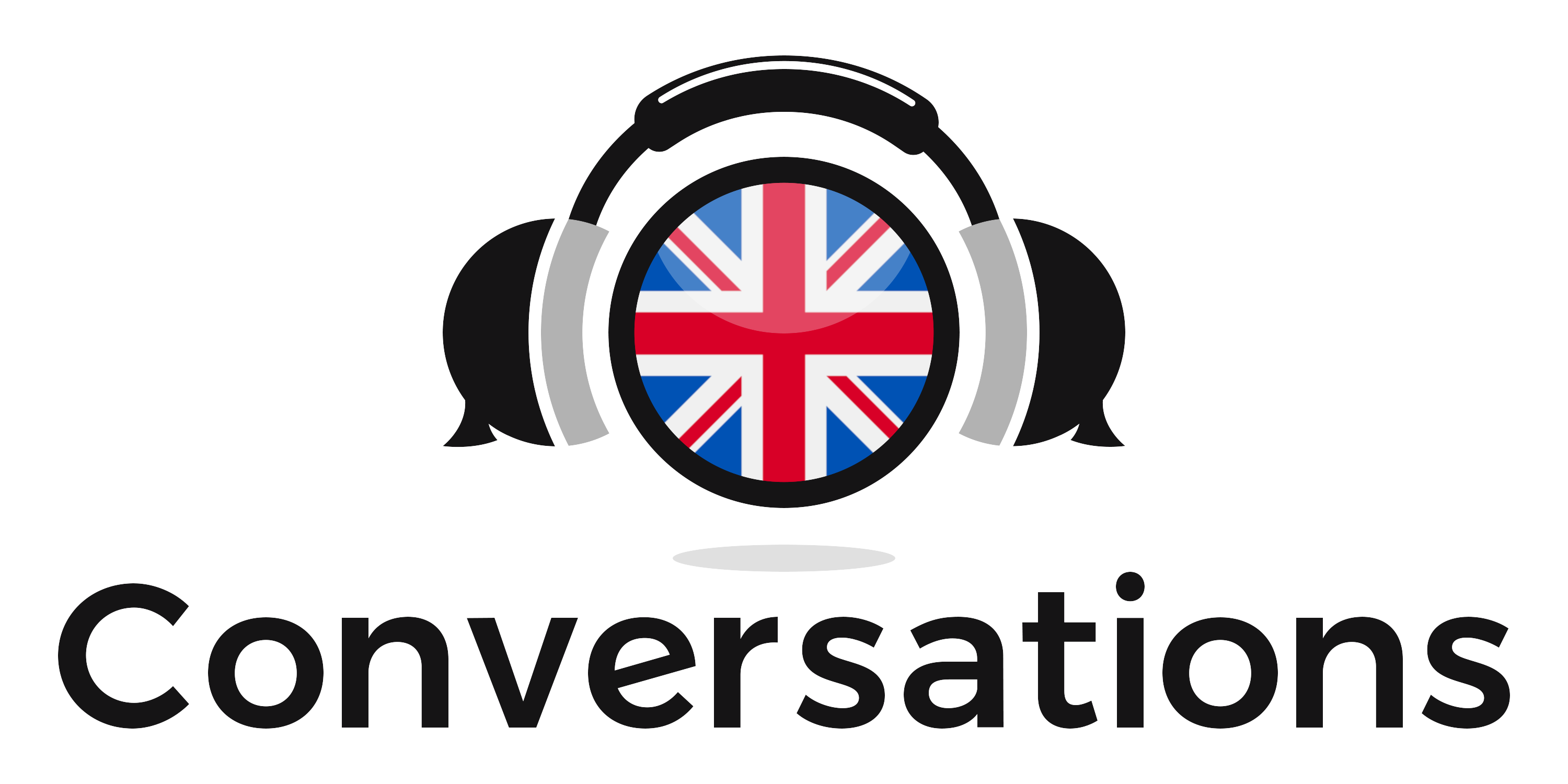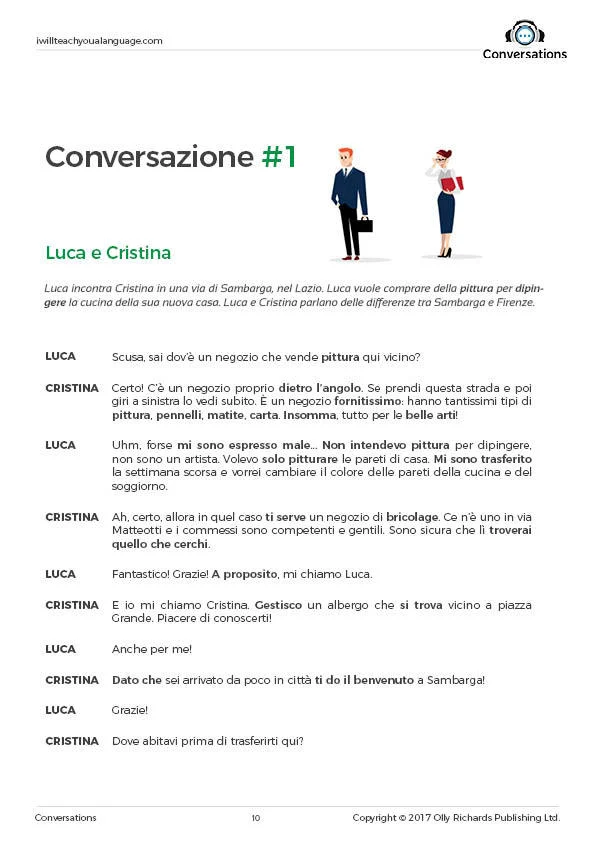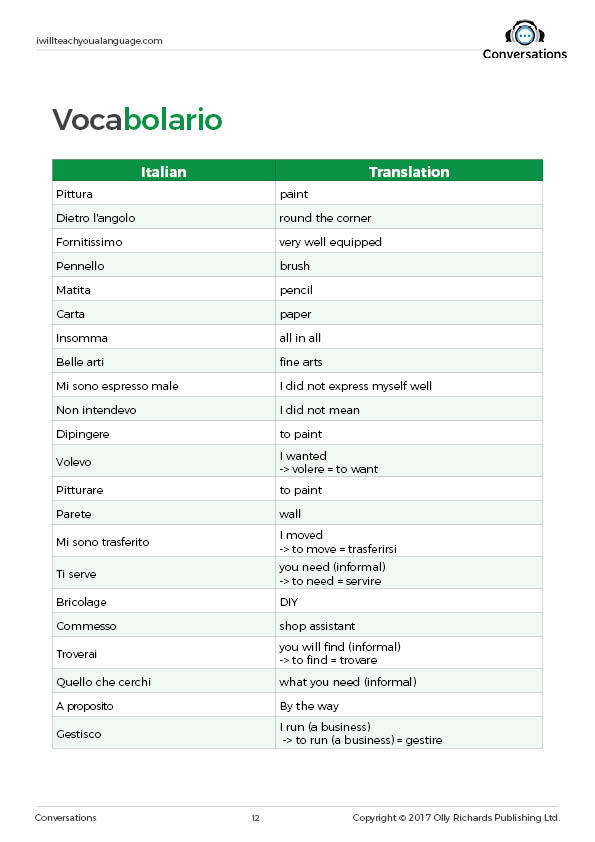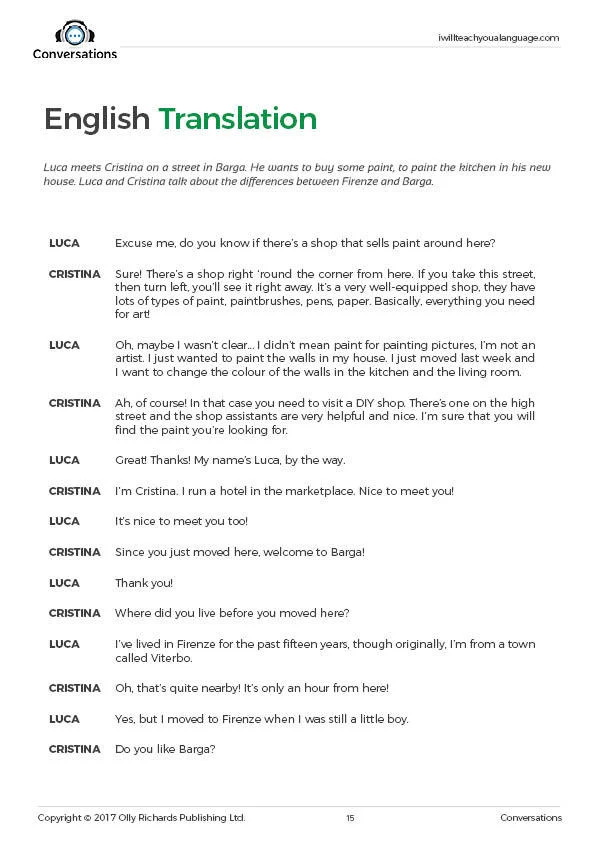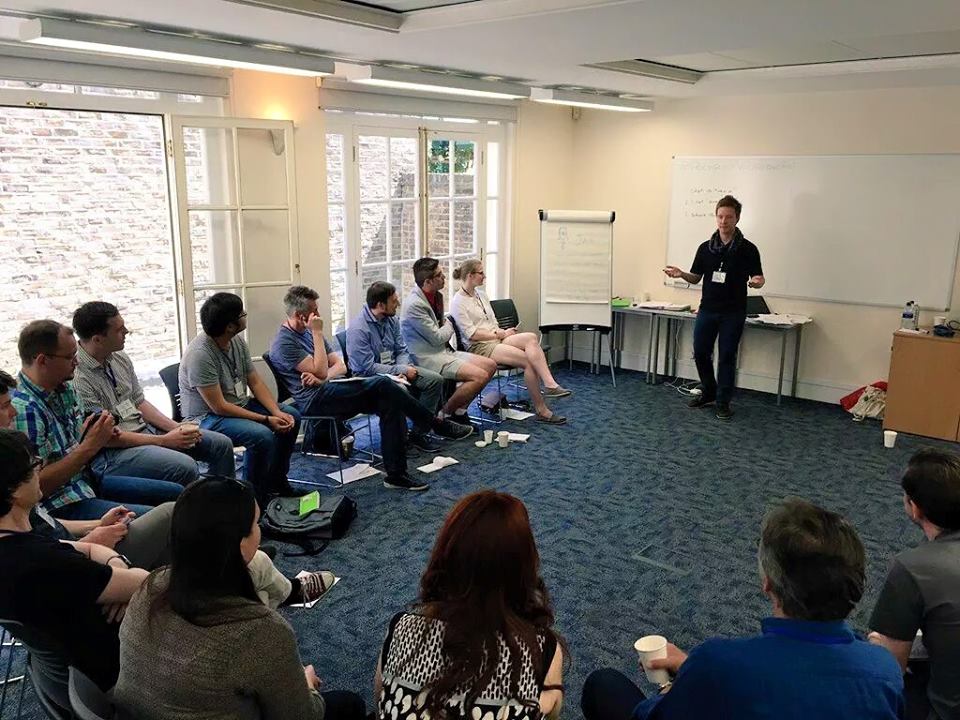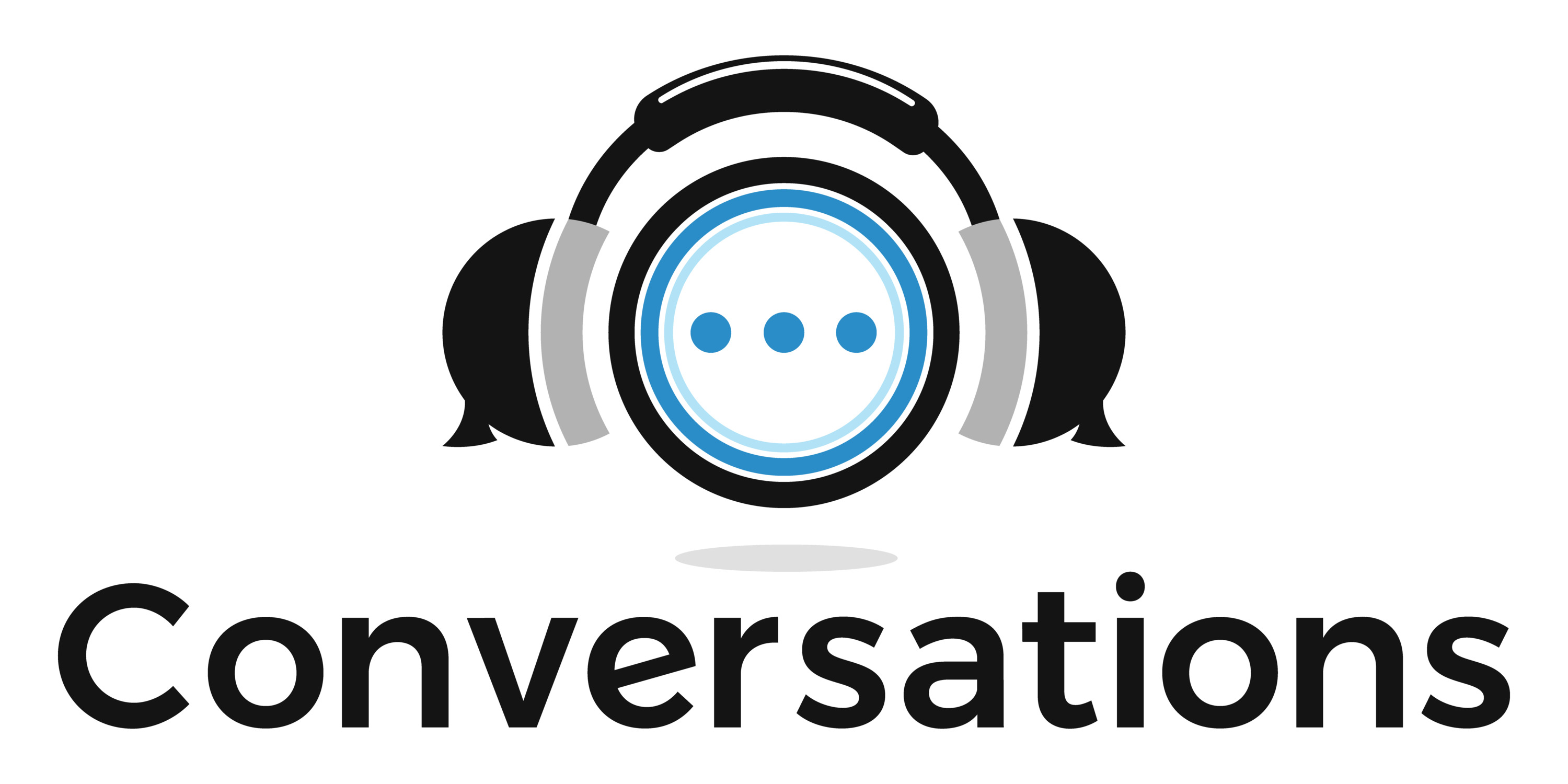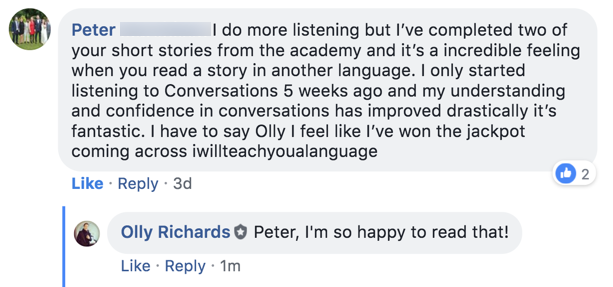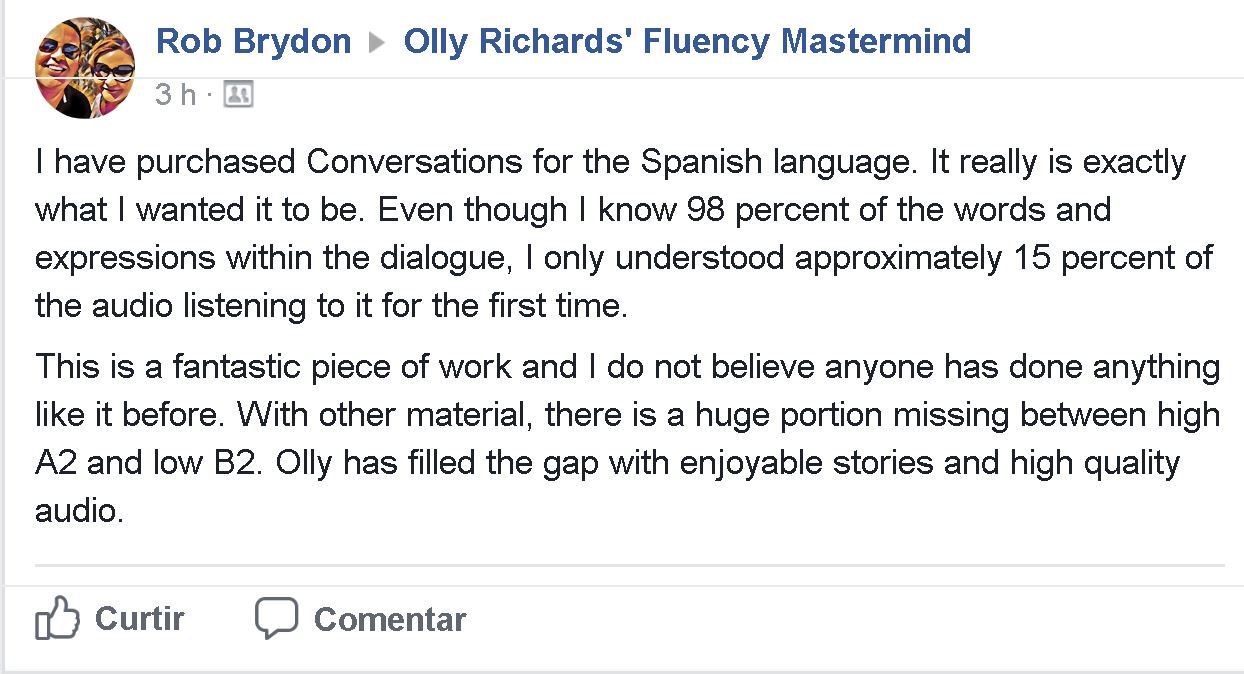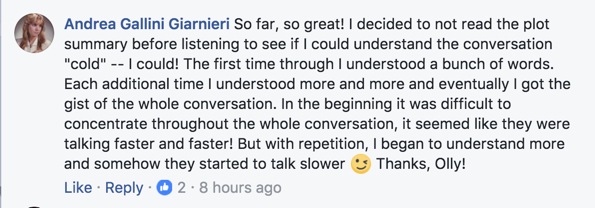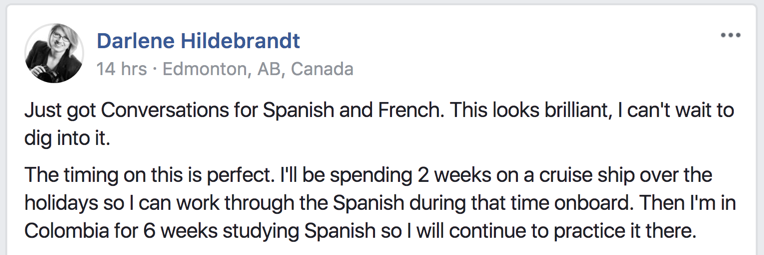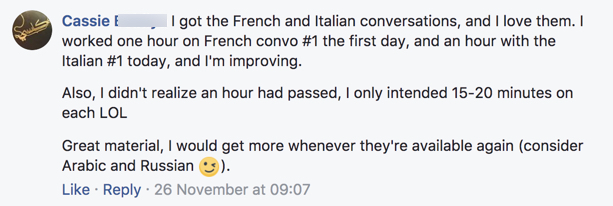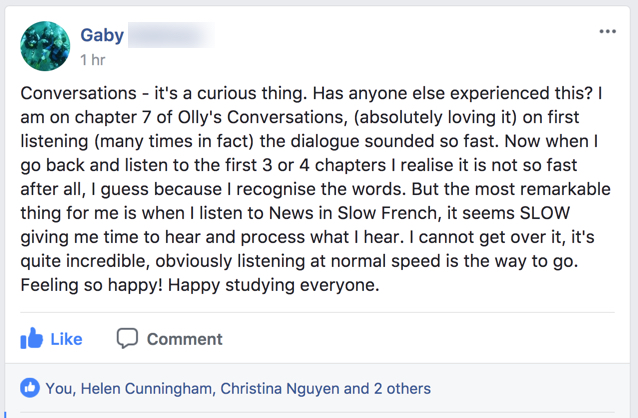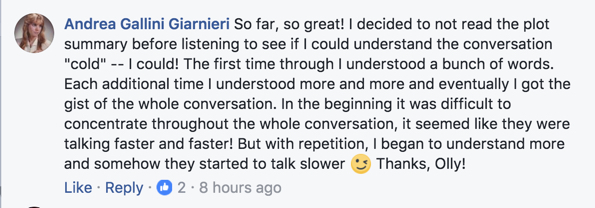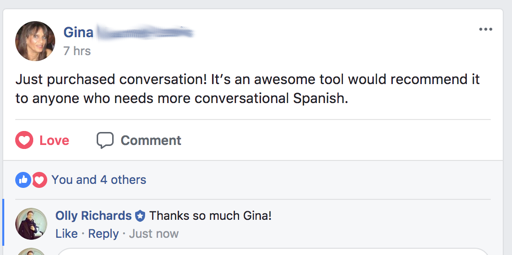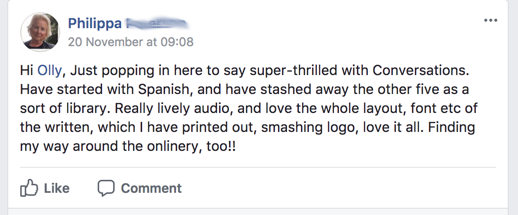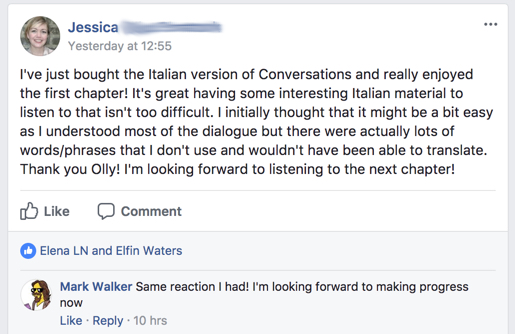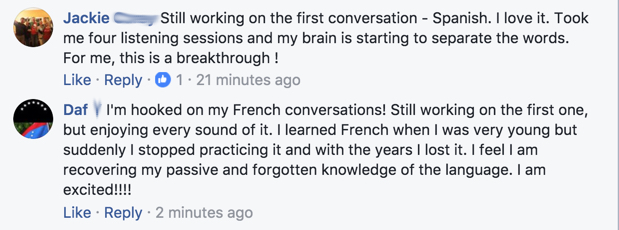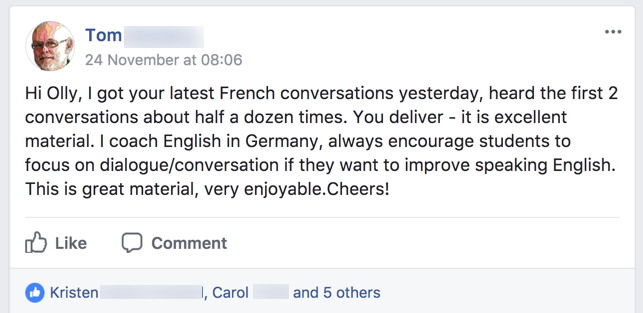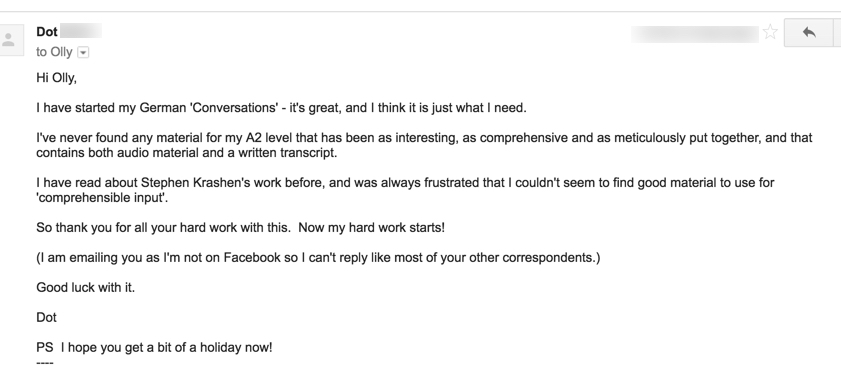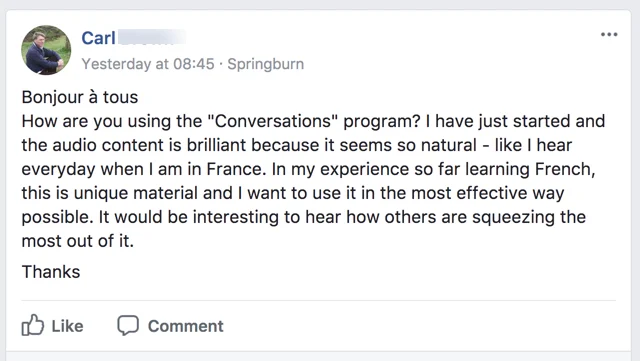Ever Felt
Frustrated Listening To
Fast Italian?
Conversations Helps You
Understand
Real Italian & Transform Your Listening Skills in Less Than 90 Days
Dear Friend,
I mean really hard!
You know what it’s like...
You’ve been learning Italian for a while, and you thought you’d be able to understand people by now...
- You didn’t expect to still find yourself panicking whenever you’re in a conversation with someone at a normal speedYou didn’t expect your confidence to evaporate when you’re stuck trying to translate what you heard in your head, and the speaker is already 10 sentences further onSure, basic conversations are easy, but you didn’t expect to still be overwhelmed by jumbles of words flying at you at 100 mph
After all the time you've spent learning, shouldn’t your “brain speed” be catching up by now?
Well, yes… it should...
But not if you keep doing what you’re doing!
Well, yes… it should...
But not if you keep doing what you’re doing!
Why Listening to Spoken Italian
Still Drives You Crazy...
I'd like to explain two things:
1) Why you still find it so hard to understand spoken Italian, and
2) Why you’ve been conned into studying the wrong way
And then a unique, new opportunity to overcome your frustration, transform your listening skills and bridge the gap from beginner to fluent in Italian.
1) Why you still find it so hard to understand spoken Italian, and
2) Why you’ve been conned into studying the wrong way
And then a unique, new opportunity to overcome your frustration, transform your listening skills and bridge the gap from beginner to fluent in Italian.
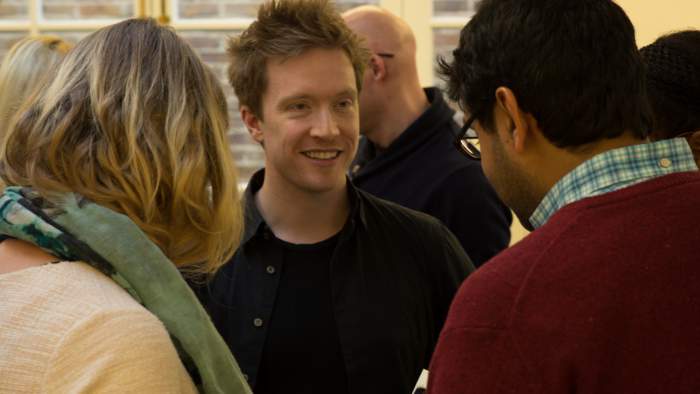
When I’m learning a new language, the struggles with
listening always begin around the same time.
At the beginner stage, I don’t understand anything, but that’s normal - I’m a beginner after all!
So, some time passes, I complete my beginner course, I learn to speak a little and make myself understood...but then
I run into a brick wall with my listening comprehension.
People still speak as fast as ever, and however much I study, I can simply never keep up.
When conversations are slowed down, I can often get the gist of what they’re saying...but you can’t slow things down in real life!
I don’t want to have to ask people to repeat 20 times, and I get tired of having this dumbfounded look on my face where all I hear is sounds, or individual words, but the overall meaning is lost on me
It’s no fun!
The worst part? Listening never seems to get any easier!
The cloud takes a very long time to lift… if it ever lifts at all… and it can be thoroughly depressing, as an ambitious language learner to always struggle to understand.
Can you relate to this?
It happens to all of us!
The question is what to do about it.
After all, you’ve outgrown your beginner’s textbooks, but as you’ve already discovered, real people don’t speak anything like your textbook, so you’ve got a problem.
When you ask people for advice, especially native speakers of the language, they tell you:
• You should watch movies or TV
• You should listen to the radio
• You should download podcasts
Sound familiar?
Look… I’m just going to say it… this is terrible advice!
I’ll go even further… it’s harmful advice!
But it took me a long time to accept this. You see, I’ve always wanted to be able to watch movies and listen to the radio in my languages.
Of course I have!
But as a learner, whenever I tried to watch this "native-level" material, I’d be so overwhelmed by the speed of the conversations, new words, unfamiliar accents, slang expressions and difficult topics that I’d feel overwhelmed, frustrated, and borderline depressed at the fact I couldn’t keep up.
What’s more, even if I could find something interesting to listen to, it never had any of the supporting material I would need to actually make good use of it… such as a transcript so I could read the words that were being spoken.
Eventually I realised the problem, and it lies in an important concept in language learning theory called “Comprehensible Input”.
People still speak as fast as ever, and however much I study, I can simply never keep up.
When conversations are slowed down, I can often get the gist of what they’re saying...but you can’t slow things down in real life!
I don’t want to have to ask people to repeat 20 times, and I get tired of having this dumbfounded look on my face where all I hear is sounds, or individual words, but the overall meaning is lost on me
It’s no fun!
The worst part? Listening never seems to get any easier!
The cloud takes a very long time to lift… if it ever lifts at all… and it can be thoroughly depressing, as an ambitious language learner to always struggle to understand.
Can you relate to this?
It happens to all of us!
The question is what to do about it.
After all, you’ve outgrown your beginner’s textbooks, but as you’ve already discovered, real people don’t speak anything like your textbook, so you’ve got a problem.
When you ask people for advice, especially native speakers of the language, they tell you:
• You should watch movies or TV
• You should listen to the radio
• You should download podcasts
Sound familiar?
Look… I’m just going to say it… this is terrible advice!
I’ll go even further… it’s harmful advice!
But it took me a long time to accept this. You see, I’ve always wanted to be able to watch movies and listen to the radio in my languages.
Of course I have!
But as a learner, whenever I tried to watch this "native-level" material, I’d be so overwhelmed by the speed of the conversations, new words, unfamiliar accents, slang expressions and difficult topics that I’d feel overwhelmed, frustrated, and borderline depressed at the fact I couldn’t keep up.
What’s more, even if I could find something interesting to listen to, it never had any of the supporting material I would need to actually make good use of it… such as a transcript so I could read the words that were being spoken.
Eventually I realised the problem, and it lies in an important concept in language learning theory called “Comprehensible Input”.
The Magic of
Comprehensible Input
Comprehensible Input
is a term invented by Dr Stephen Krashen, who said that you can only learn new language when the material you’re using - your
input
- is
comprehensible.
This means that the level of your material needs to be pitched just right...
So it’s not too hard...
And you can understand just enough that you can follow along with the gist of the conversation...even if there are some unknown words.
Think of Comprehensible Input as: "Your current level +1"
When I started to compare the theory of Comprehensible Input to the language material I was trying to use, it was immediately obvious why I was struggling...
My beginner’s textbook was too easy for me: “-1” so there was nothing new for me to learn.
But the movies, TV and podcasts I was listening to… along with all the panicky conversations I was trying to have with native speakers… were far too hard for me to understand: “+100!”
So, with these, I would also learn nothing...but for the opposite reason!
This means that the level of your material needs to be pitched just right...
So it’s not too hard...
And you can understand just enough that you can follow along with the gist of the conversation...even if there are some unknown words.
Think of Comprehensible Input as: "Your current level +1"
When I started to compare the theory of Comprehensible Input to the language material I was trying to use, it was immediately obvious why I was struggling...
My beginner’s textbook was too easy for me: “-1” so there was nothing new for me to learn.
But the movies, TV and podcasts I was listening to… along with all the panicky conversations I was trying to have with native speakers… were far too hard for me to understand: “+100!”
So, with these, I would also learn nothing...but for the opposite reason!

Bridging the Gap
From Beginner to Advanced
I understood right away that if I wanted to keep improving my listening skills, I would need to find material that somehow bridged the gap between “too easy” and “super advanced”.
I wanted material that was interesting and compelling, so I was motivated to listen and understand
I wanted material that was just the right length, so I could practise my listening without getting overwhelmed
I wanted material that was based on real conversations, including common slang and expressions, so I could learn how people actually talk
I wanted full transcripts
of all the audio, so I could match the spoken words to the written words
I wanted English translations, so I didn’t have to spend all day with my head in the dictionary
...and I wanted all of this at my level
+1!
The "Perfect" Material
Needless to say, I struggled to find this material anywhere, so I eventually started making my own.
I would gather friends together and record them talking about interesting topics
I would ask my teachers to record themselves speaking in the language and then write out what they said word-for-word
I even paid people to transcribe easy TV shows I wanted to understand, word-for-word
It worked.
Finally, I had listening material that excited me, transcripts to help me understand, and was learning new vocabulary and natural grammar faster than ever before
I spent every day listening, because I’d finally found something enjoyable, that worked!
I soon found myself enjoying my own conversations much more because I wasn’t struggling to listen anymore - I was able to cope with listening to fast speech.
I even felt happier and more positive in my life, as I was able to finally able to relax and appreciate the beauty and music of the language.
And it was all because of one simple principle: Comprehensible Input.
It was:
• Audio content that I loved
• At just the right level
• With transcripts and translations to read along
By this time I had a popular blog and podcast about language learning, and many people were starting to ask about the secrets of improving their listening skills, so they could progress towards more advanced levels in a language.
Of course, I would tell people what I'd learned.
I would explain the theory of Comprehensible Input , the importance of listening to natural language while reading the transcript, and the importance of finding compelling material that was exciting to study with.
I would tell people that...and then they would say: “That’s fantastic! I know what I have to do! Now, where can I get this material?”
And I had no answer for them.
Finally, I had listening material that excited me, transcripts to help me understand, and was learning new vocabulary and natural grammar faster than ever before
I spent every day listening, because I’d finally found something enjoyable, that worked!
I soon found myself enjoying my own conversations much more because I wasn’t struggling to listen anymore - I was able to cope with listening to fast speech.
I even felt happier and more positive in my life, as I was able to finally able to relax and appreciate the beauty and music of the language.
And it was all because of one simple principle: Comprehensible Input.
It was:
• Audio content that I loved
• At just the right level
• With transcripts and translations to read along
By this time I had a popular blog and podcast about language learning, and many people were starting to ask about the secrets of improving their listening skills, so they could progress towards more advanced levels in a language.
Of course, I would tell people what I'd learned.
I would explain the theory of Comprehensible Input , the importance of listening to natural language while reading the transcript, and the importance of finding compelling material that was exciting to study with.
I would tell people that...and then they would say: “That’s fantastic! I know what I have to do! Now, where can I get this material?”
And I had no answer for them.
I Felt Angry...
I explained how I spent countless hours myself making my own material, asking people for favours and pushing the generosity of my friends and teachers to the limits.
But I had no answer for others wanting to learn in the same way in different languages, and honestly, I felt angry.
In the back of my mind throughout was the thought: “I shouldn’t have had to do all this myself!”
“People who are trying their very best to learn a new language shouldn’t have to torture themselves with material that’s too hard, and suffer the endless frustration that comes with it.”
After all, it’s not your fault that good intermediate listening material doesn’t exist!
You might expect publishers to have a go at this challenge, but the truth is publishers are too busy making more textbooks...because they know that’s what people will keep buying.
And also, I suppose, it’s not easy to make effective, compelling listening material, unless you've learned languages yourself and know what works.
But when you have this material, the results in your listening comprehension can be incredible...
But I had no answer for others wanting to learn in the same way in different languages, and honestly, I felt angry.
In the back of my mind throughout was the thought: “I shouldn’t have had to do all this myself!”
“People who are trying their very best to learn a new language shouldn’t have to torture themselves with material that’s too hard, and suffer the endless frustration that comes with it.”
After all, it’s not your fault that good intermediate listening material doesn’t exist!
You might expect publishers to have a go at this challenge, but the truth is publishers are too busy making more textbooks...because they know that’s what people will keep buying.
And also, I suppose, it’s not easy to make effective, compelling listening material, unless you've learned languages yourself and know what works.
But when you have this material, the results in your listening comprehension can be incredible...

